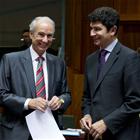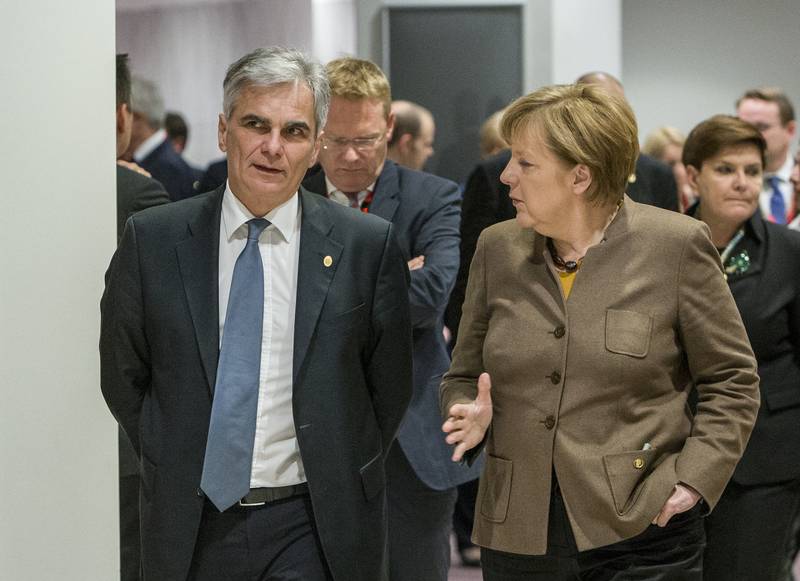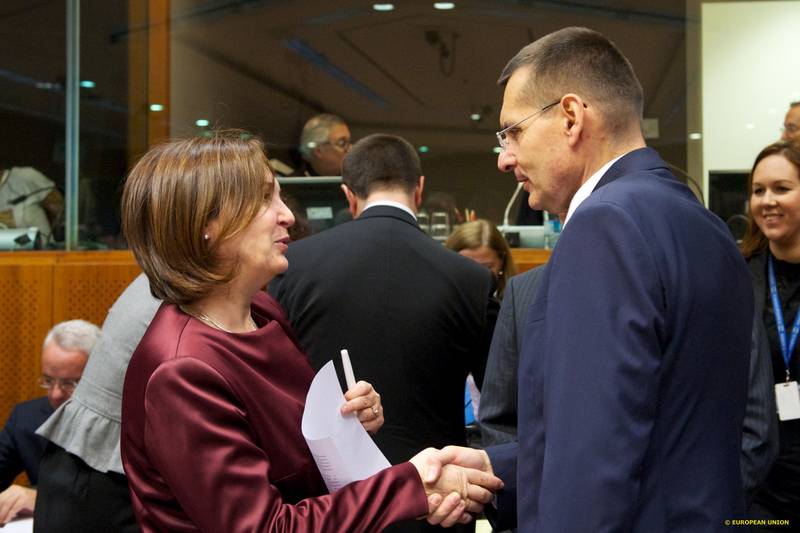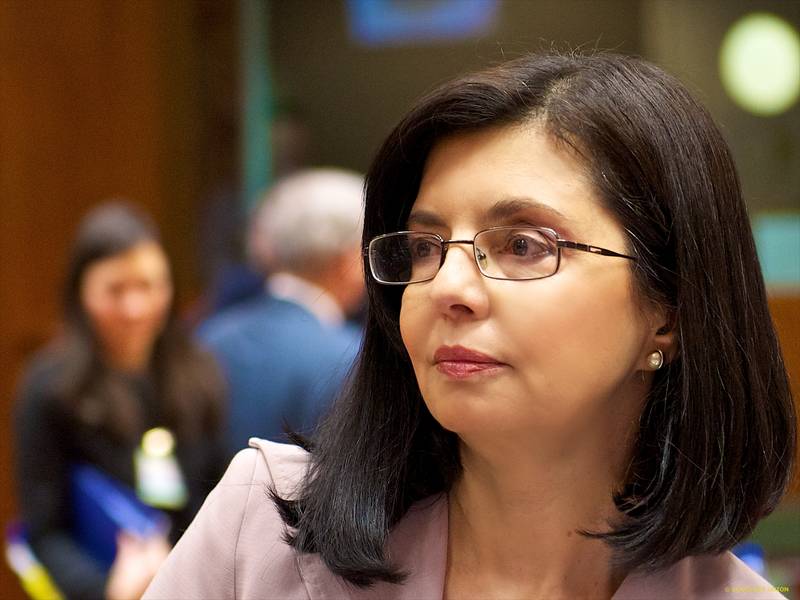The Netherlands: We Don't Want to Decide Now and Regret Later
Ralitsa Kovacheva, Adelina Marini, September 24, 2011
 At the meeting of EU Justice and Home Affairs Council on 22 September two countries, Finland and the Netherlands, have vetoed the accession of Bulgaria and Romania to the Schengen area. euinside is presenting herewith the arguments of the two countries. Dutch Minister for Immigration and Asylum Affairs Gerd Leers denied the accusations that the Netherlands's position was due to the Freedom party of Geert Wilders, the minor coalition partner in the Dutch government: “Using this argument [about the Freedom party] is too easy, it's just too simple. The content - be honest and show how are you going to repair the shortcomings that exist at the moment.” More of his arguments follow:
At the meeting of EU Justice and Home Affairs Council on 22 September two countries, Finland and the Netherlands, have vetoed the accession of Bulgaria and Romania to the Schengen area. euinside is presenting herewith the arguments of the two countries. Dutch Minister for Immigration and Asylum Affairs Gerd Leers denied the accusations that the Netherlands's position was due to the Freedom party of Geert Wilders, the minor coalition partner in the Dutch government: “Using this argument [about the Freedom party] is too easy, it's just too simple. The content - be honest and show how are you going to repair the shortcomings that exist at the moment.” More of his arguments follow:
Dutch Minister for Immigration and Asylum Affairs Gerd Leers:
The position of my government has always been clear and I underlined our position again. Without full confidence that all legal reforms in the judicial system are effective and irreversible, and that's what I reiterated, we can't support the Schengen accession of Romania and Bulgaria. So, that was the conclusion this morning [September 22]. Also, we recognise the continued efforts of the Romanian and Bulgarian governments, [but] I think that we have to be honest about the results. And these results at this moment are not enough. There are serious shortcomings. And these shortcomings first have to be repaired. So, we concluded that at this time we can't agree with the accession at this moment. There is at this moment no trust and the credibility that the Schengen system is in order. So, we want to prevent, and let me put it in that slogan - we want to prevent a situation in which we decide now and regret later.
You see, to say 'yes' at this moment could be harmful at the trust of the European citizens and the European institutions. In this moment there is already a European crisis. The trust of a lot of people in the EU, in these institutions is lacking. So, there's just one answer - that we have to work on the content. We must ensure that the content will be 100% OK. And our conclusion is that that is not the case regarding the rule of law in Bulgaria and Romania. So for us, we decided to say 'no' to the accession of this moment of both countries.
As you know there is this CVM report by the European Commission and in that report you see several shortcomings. For instance a few of them: a number of acquittals in cases involving a number of high level officials for corruption. Fraud and organised crime express serious deficiencies in the judicial practises of Bulgaria. That's one of them. And in the case of Romania, despite progress, consistency remains a challenge. Progress in the fight against corruption still needs to be pursued. […]
At this moment there is a lack of trust in that sense so we don't think that the implementation of the Schengen acquis can be done properly. The question now is when is that the case. And the answer therefore has to be given by Bulgaria and Romania themselves, not by us, by showing us that in the next report there will be progress, that the shortcomings of this moment will be solved. In February there will be an interim report and for me that's a good moment and a good occasion [to discuss] what can be the next step.
I don't know what's going to happen at the October summit but as I said already for us the content is leading and if there is no new content and no new information regarding the progress of the content it's useless to discuss it again. So first we want to see results in a better performance and the next CVM report can show us.
Let me give you an example. If you have a door […] with the best locks of the world, you can say that that door is technically safe. So nobody can come in. But if a man is standing before that door and he opens it for the one he likes, then it is not safe. So what we need is not only a technical approval of the situation of Bulgaria and Romania but also the underlying rule of law. And that means the fight against corruption, the fight against organised crime, the repairing the lack of the judicial system - these are important. The problem is [that if] the border control is fluid then the chance is great that criminals can make use of this situation and what they are going to do is trafficking of young women, trafficking of arms, trafficking of drugs. That's the situation and I'm concerned for that. At this moment we are also civilians in Europe. In the one hand we live here in the hope of good life and that we have work and our income, but on the other hand we need safety and security and these elements work together. This is the lack of trust in Europe - people are afraid. At this moment we ask people to have solidarity with each other, financial solidarity and at the same time we see that there is a lack of provisions.
All countries said at this moment [they were] not for full accession. A lot of countries had serious doubts - like Finland, Germany, France and they proposed alternative but we didn't agree with this alternative. Because if you say a partial accession you can't go back if there are deficiencies.
I'm open for the accession of Bulgaria and Romania in Schengen. There is no situation that I don't want them to join us. I think it's important that they join as soon as possible but only if the content is set. Only if we can fully trust in the rule of law. People need to see that we keep the standards. It is not personal.
As I told you this is not about the technical criteria, it's more than that. You have to rely on the rule of law. Be honest, when both countries joined the EU now we all say to each other it was too early and because of that this instrument, the CVM, was developed and this instrument has to stimulate both countries to bring in order, in shape, their rule of law and their judicial system. And now we are talking about joining Schengen and I think a match between them is needed.
Note from the editor: These words of Mr Gerd Leers were taken from the news conference he gave after the JHA Council in Brussels on September 22 in the Netherlands's briefing room. Most of the things he said were in response to questions of Bulgarian and Romanian journalists. If you would like to watch the answers to these questions, you have to forward to the moment he speaks in English.
 Werner Faymann, Angela Merkel | © Council of the EU
Werner Faymann, Angela Merkel | © Council of the EU Rumyana Bachvarova, Petre Toba | © Council of the EU
Rumyana Bachvarova, Petre Toba | © Council of the EU Meglena Kuneva | © Council of the EU
Meglena Kuneva | © Council of the EU